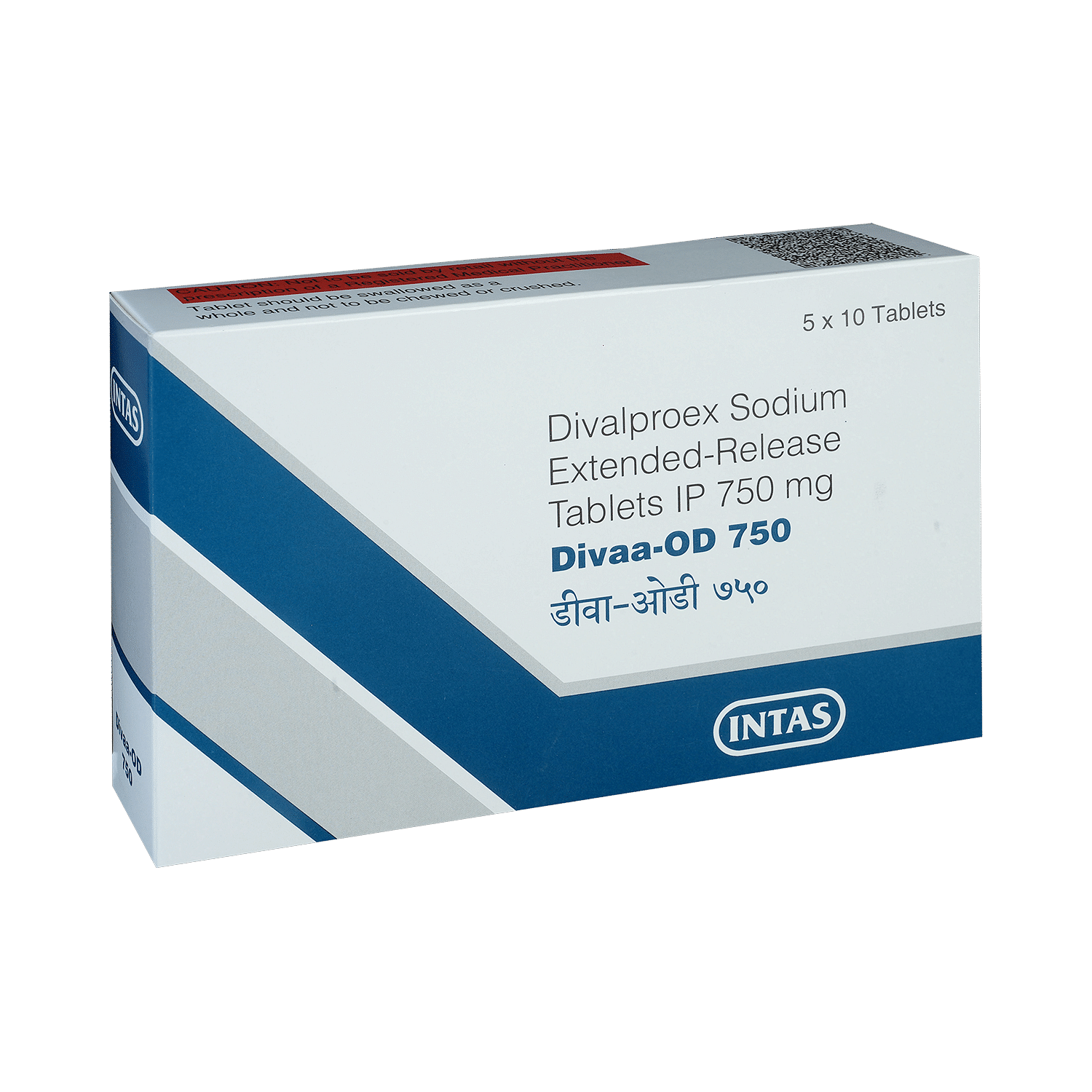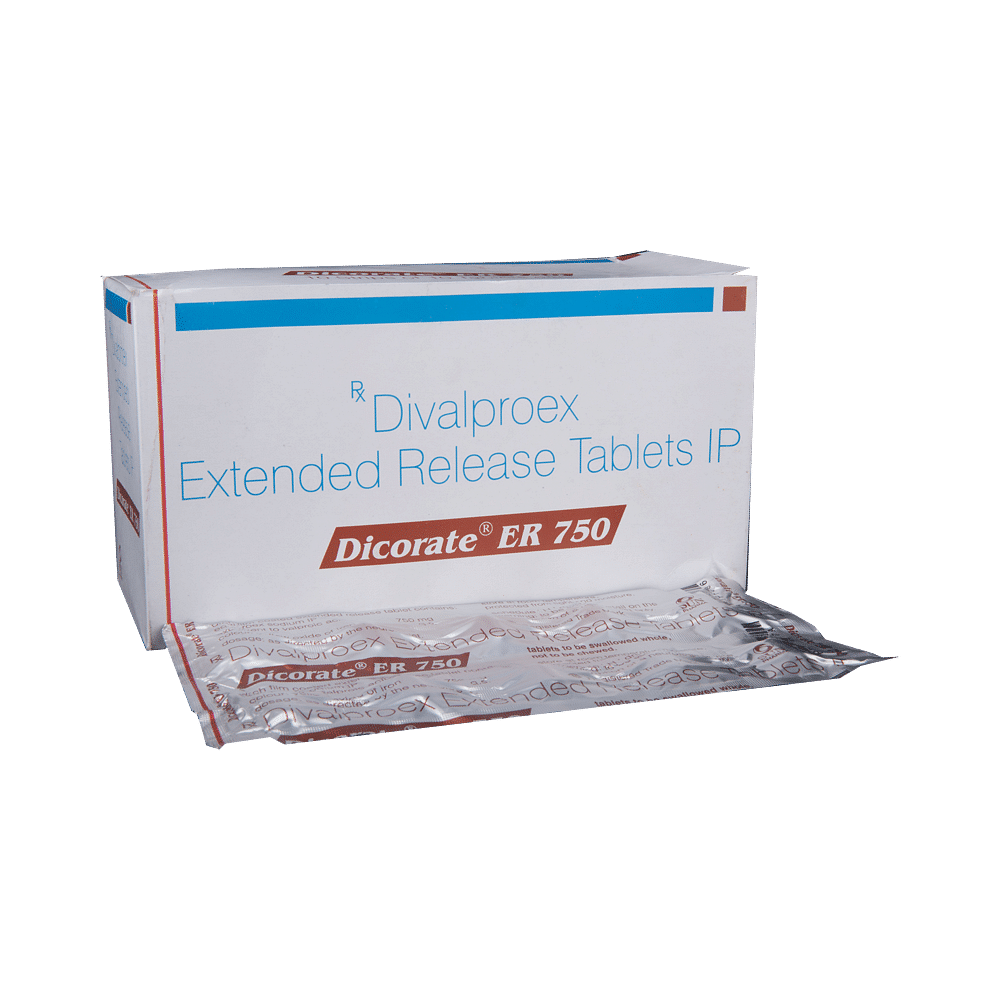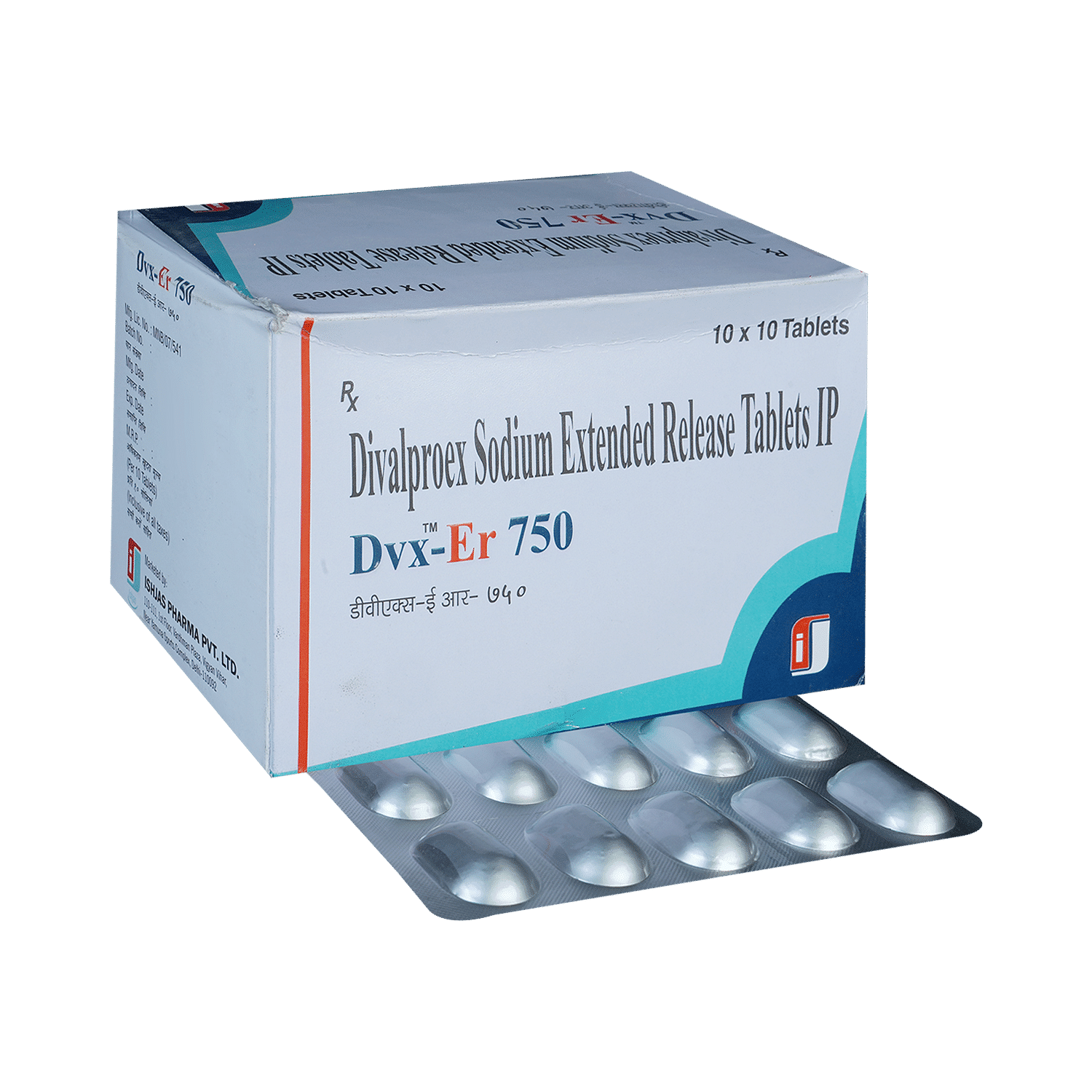
Veprex 750mg Tablet ER
Manufacturer
Vee Remedies
Salt Composition
Divalproex (750mg)
Key Information
Short Description
Veprex 750mg Tablet ER is used to treat epilepsy, prevent migraines, and occasionally treat bipolar disorder.
Dosage Form
Tablet ER
Introduction
Veprex 750mg Tablet ER may be used alone or in combination with other medicines to control seizures and prevent migraines. The dosage and frequency will be determined by your doctor. It can be taken with or without food but should be taken at the same time each day. Common side effects include headache, blurred vision, nausea, vomiting, dizziness, tiredness, unsteadiness, bruising, and decreased body temperature. Long-term use may lead to osteoporosis and an increased risk of fractures. Rarely, it may cause suicidal thoughts. Inform your doctor if you have heart, kidney, or liver problems, or if you are pregnant. Avoid alcohol as it can increase side effects and seizure risk. Regular blood tests may be required.
Directions for Use
Take this medicine in the dose and duration as advised by your doctor. Swallow it whole without chewing, crushing, or breaking it. It can be taken with or without food but is better taken at a fixed time.
Safety Information
Side Effects
Headache Blurred vision Nausea Vomiting Dizziness Tiredness Unsteadiness Bruising Decreased body temperature
Alcohol Warning
Veprex 750mg Tablet ER may cause excessive drowsiness with alcohol.
Breastfeeding Warning
Veprex 750mg Tablet ER is safe to use during breastfeeding. Human studies suggest that the drug does not pass into the breastmilk in a significant amount and is not harmful to the baby.
Pregnancy Warning
Veprex 750mg Tablet ER is unsafe to use during pregnancy as there is definite evidence of risk to the developing baby. Consult your doctor.
Interacting Medicines
Alprazolam Chlordiazepoxide Clobazam Clonazepam
How it works
Veprex 750mg Tablet ER is an antiepileptic medication that controls seizures by decreasing the abnormal and excessive activity of nerve cells in the brain.
Quick Tips
Take your medication regularly as directed by your doctor as missing doses can trigger seizures. It can be taken with or without food but better to take with food to avoid stomach upset. Do not change the brand of your medicine and ensure you have a sufficient amount of medicine. Practice yoga every day to prevent seizures. Get enough sleep at nighttime. Limit screen time such as mobile/laptop use. It may cause dizziness and sleepiness. Do not drive or do anything that requires mental focus until you know how it affects you. Monitor your weight during treatment as it can cause weight gain. Your doctor may get regular blood tests done to monitor how the medication is affecting your body. Inform your doctor if you notice yellowing of eyes or skin, dark urine, or stomach pain. Do not stop taking the medication suddenly without talking to your doctor as it may increase the seizure frequency.
Related Medicines

Divaa -OD 750 Tablet ER

Dicorate ER 750 Tablet

Valpam 750mg Tablet ER

Vizox-ER 750 Tablet

Divalz 750mg Tablet ER

Diresta OD 750mg Tablet ER

Goldival 750mg Tablet ER

Valnap 750mg Tablet ER

Divaltus OD 750mg Tablet ER

Dvx 750mg Tablet ER
Frequently asked questions
What happens if I stop taking Veprex 750mg Tablet ER without consulting my doctor?
Stopping the medication suddenly may lead to recurrence of symptoms, irritability, anxiety, dizziness, and tremors. The dose should be reduced gradually and eventually stopped under a doctor's supervision.
Can Veprex 750mg Tablet ER be used as a mood stabilizer?
Yes, it can sometimes be used to stabilize mood in patients experiencing rapid changes. It works by calming the hyperactivity of the brain during these changes.
Does Veprex 750mg Tablet ER cause weight gain?
Yes, weight gain may occur due to increased hunger. Regular diet and exercise can help prevent this.
May Veprex 750mg Tablet ER make me feel sleepy?
Yes, it may cause drowsiness. Avoid driving or work that requires mental focus until you know how it affects you.
Can Veprex 750mg Tablet ER cause hair loss?
Yes, temporary hair loss is possible and may be related to the dose. Consult a doctor if this persists or bothers you.
Does Veprex 750mg Tablet ER damage the liver?
It can cause liver damage, particularly during the first 6 months of treatment. Monitor liver function tests before and periodically during therapy, especially in those at risk or with a history of liver disease.
Should I avoid consuming alcohol while taking Veprex 750mg Tablet ER?
Yes, consume alcohol responsibly as it may enhance drowsiness, lightheadedness, and dizziness associated with the medication.
Which laboratory tests are recommended before starting treatment with Veprex 750mg Tablet ER?
Blood cell count, bleeding time, coagulation tests, and liver function tests may be suggested by your doctor to avoid spontaneous bruising or bleeding and monitor for potential liver damage.
What should I do if I experience abdominal pain, nausea, and anorexia?
If you have severe abdominal pain along with nausea and vomiting, consult a doctor immediately. If pancreatitis is suspected, medication may need to be stopped.
How can I identify an overdose of Veprex 750mg Tablet ER?
Overdose symptoms include headaches, blurred vision, decreased reflexes, confusion, muscle weakness, seizures, loss of consciousness, behavioral changes, and breathing difficulties. Seek immediate medical attention if you suspect an overdose.


